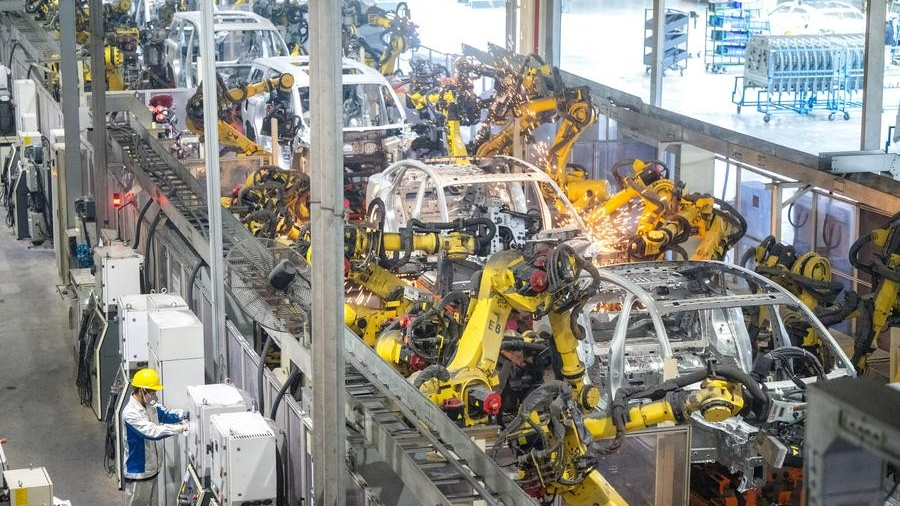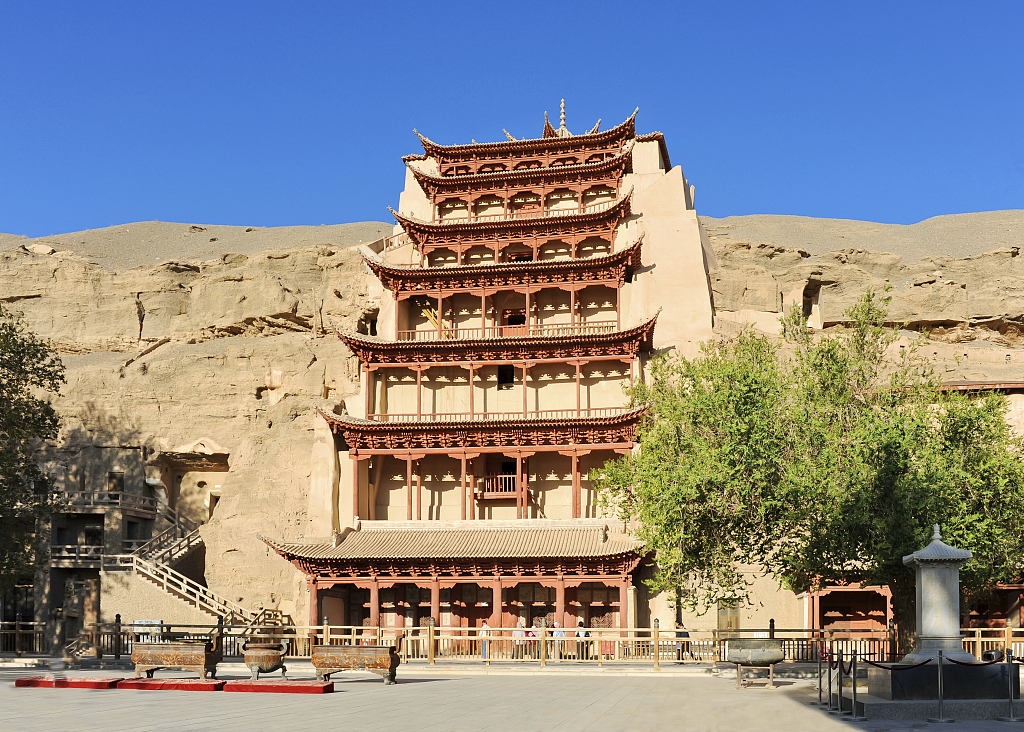【CGTN】夏璐等:Democratic centralizing and unifying leadership: Key to China's triumph
发布时间:2023-03-14On the morning of March 10, the third plenary meeting of the first session of the 14th National People's Congress (NPC) elected Xi Jinping as the president of the People's Republic of China (PRC) and chairman of the Central Military Commission. The same plenary meeting also elected Zhao Leji as the chairman of the Standing Committee of the 14th NPC, Han Zheng as the vice president of the PRC, and other 14 members as vice chairpersons of the Standing Committee of the 14th NPC. Right after the official announcement of the election results, these newly elected senior leaders took an oath of loyalty solemnly in front of the deputies who represent 1.4 billion people and to the Constitution of the PRC.
The election procedure has substantial meaning. According to scholars who are familiar with China's political structure, the NPC should not merely be treated as a law-making body, rather it has been entrusted by the constitution with a couple of powers including decision-making, policy-deliberation, and appointment and removal of senior officials.
Important issues ranging from amendments to the constitution, reforms of state organs, and formulation of annual budget plan and even national strategic plans for longer period to elections of top leaders are all within the jurisdiction of the NPC. With this particular institutional design, instead of checks-and-balance or separation-of-powers, the country is provided with centralizing and unifying leadership, and creating and maintaining a centralizing and unifying leadership is not only the most distinguishable feature of China's politics, but also the aim that has been pursuing by generations of elites in modern Chinese history. This shows the feature of China's democratic centralism.
Centralizing and unifying leadership does not necessarily mean that the country will not promote democracy or go against the democratic value. In fact, it is inappropriate to understand Chinese politics with this binary opposition.
The key to Chinese politics is the concept of democratic centralism, which is the fundamental organizing principle of the Communist Party of China (CPC) and the institutions of the PRC and the primary guiding principle of political participation of contemporary China, i.e., the whole-process people's democracy. Promoting whole-process people's democracy and the practice of centralized and unified leadership are consistent and not contradictory.
The power of major decision-making rests with the central authority does not mean no other opinions would be heard; instead, the decision-making in China's central leadership is a complicated process, which normally takes several rounds of discussion involving related parties. After listening to the opinions and suggestions from all aspects, some certain authority has to make a final decision, and the right to make this final decision lies with the central authority.
In the process of brewing and discussion, it is necessary to fully promote democracy and let each and every related parties speak freely, but once the final decision has been made, all parties must resolutely obey and implement them without any further delay or insincerity. Under the premise of resolutely implementing the decisions and arrangements, opinions and problems can still be reflected in due process, even up to the supreme sovereign organs.
With the above-mentioned institutional design, it is conducive to scientific decision-making, democratic decision-making, and law-based decision-making, while avoiding major mistakes or even subversive missteps. It is also conducive to overcoming decentralism and individualism, avoiding discussion without decision, and forming a strong joint force to promote the development of the cause of the country.
After all, China is such a vast country with huge size and large population, if the central state institution does not hold certain extent of authority to set an overall blueprint, and other state institutions do not implement whatever the central authority has decided or even each region sets its own standard and each unit only takes into account its own interest, then nothing can be achieved in China, neither the growth of GDP per capita nor poverty alleviation for instance, let alone the realization of Chinese path to modernization and rejuvenation of Chinese nation.
Since the Chinese path to modernization is such a great and arduous undertaking, it is reasonable to argue that the more magnificent the journey, the more ambitious the goal, the more arduous the task, the more essential it is for the steering orientation of the centralizing and unifying leadership as well as the guidance of scientific theories.
原文链接:Democratic centralizing and unifying leadership: Key to China's triumph







